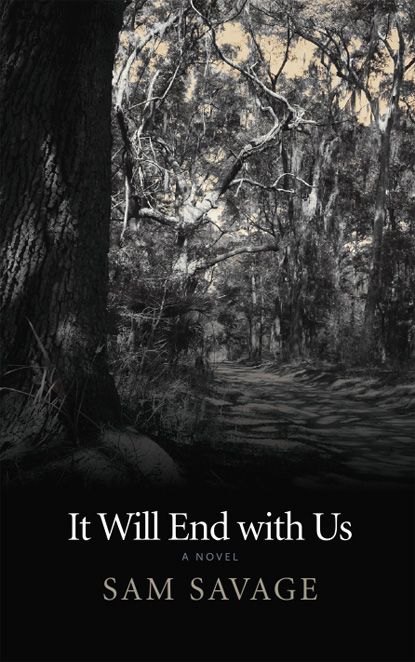
It Will End with Us
A Novel
کتاب های مرتبط
- اطلاعات
- نقد و بررسی
- دیدگاه کاربران
نقد و بررسی

November 1, 2014
Savage first caught our attention with Firmin, a rat's-eye view of the literary life, so you know to expect something different from his latest work. An older woman named Eve looks back at a Southern childhood in duskier, Tennessee Williams times, offering an aphoristic scattering of memories--one- and two-sentence stand-alones that spill isolated down the page like little gems. She's trying to reconstruct her past, particularly her demanding, somewhat unconventional mother. But what she's really doing is showing us how memory works and how we make sense of our lives, drip by drip and sensation by sensation. VERDICT Readers who aren't afraid of unusual formats will find an astute and accessible psychological study here.
Copyright 2014 Library Journal, LLC Used with permission.

October 15, 2014
First-person fiction in the guise of an impressionistic memoir by an older woman recalling her small-town girlhood.Many of the paragraphs in Savage's (The Way of the Dog, 2013, etc.) latest are made up of a single sentence, and most of them seem to stand on their own, not necessarily connecting to the previous one or the next, each isolated by white space. It's as if the paragraphs are snowflakes, each unique, yet creating a cumulative effect through accretion. This is writing about writing, words about words, remembering through the distortions and inventions of memory. Many of the paragraphs, often many in a row, start with the words "I remember...." Others begin with "The time" and are often a series of sentence fragments, such as "The time Edward squeezed my head so hard it hurt." Edward is one of the narrator's two brothers, with whom she has lost all contact. Her other brother is Thornton-"And Thornton too without children, so it will end with us, probably." Next paragraph, with rare continuity: "Which is for the best. I don't see that we represent anything anymore." The entirety of the novel takes place within the consciousness of the woman writing at her desk, much as she remembers that her mother once did. The reader senses that the mother went mad and wonders whether this is a reflection of the narrator's projection: "Writing at the desk I sometimes get the feeling that I am my mother....I have no idea what the sentence I just wrote means." Almost as an aside, she writes, without any explanation, that "having become thoroughly estranged from my parents by the time they died I am estranged from their ghosts as well." This is not a novel for anyone who expects time to move in a straightforward fashion or for memories to cohere or for beginnings and endings to be other than arbitrary.
COPYRIGHT(2014) Kirkus Reviews, ALL RIGHTS RESERVED.

September 22, 2014
In this slim, impressionistic tale of a South Carolinian family in decline, Savage (The Way of the Dog) again displays his distinctive, and late-blooming, voice. (His first novel, Firmin, about a bookstore-dwelling rat, was published when he was in his 60s.) Here, a woman named Eve Taggart sits at her mother’s old desk to record the “figments, mental images, and phantasms” of her past: her eccentric mother, who only wears lavender dresses and harbors unrealized literary dreams; the games played by her boisterous brothers around the deteriorating family home, ironically named Spring Hope; and her own coming-of-age in the “busy world that I have never been quite entirely a part of.” Eve’s narration, broken into a series of short, associative paragraphs, is uncertain, wry, and poignant as often as it is bizarre: “Birds cannot be considered neurotic. Any bad feelings they have they get rid of by flying, I imagine.” The Southern, shabby genteel setting and strains of familial madness recall Faulkner, but Eve’s “inventory of tiny things” more resembles the off-kilter, experimental style of Beckett. The novel’s fragmentation and insistence on the fictitious quality of memory never lessen the emotional impact of this portrait of a mother and daughter, each compelled to write and each “ill equipped for life.”

























دیدگاه کاربران